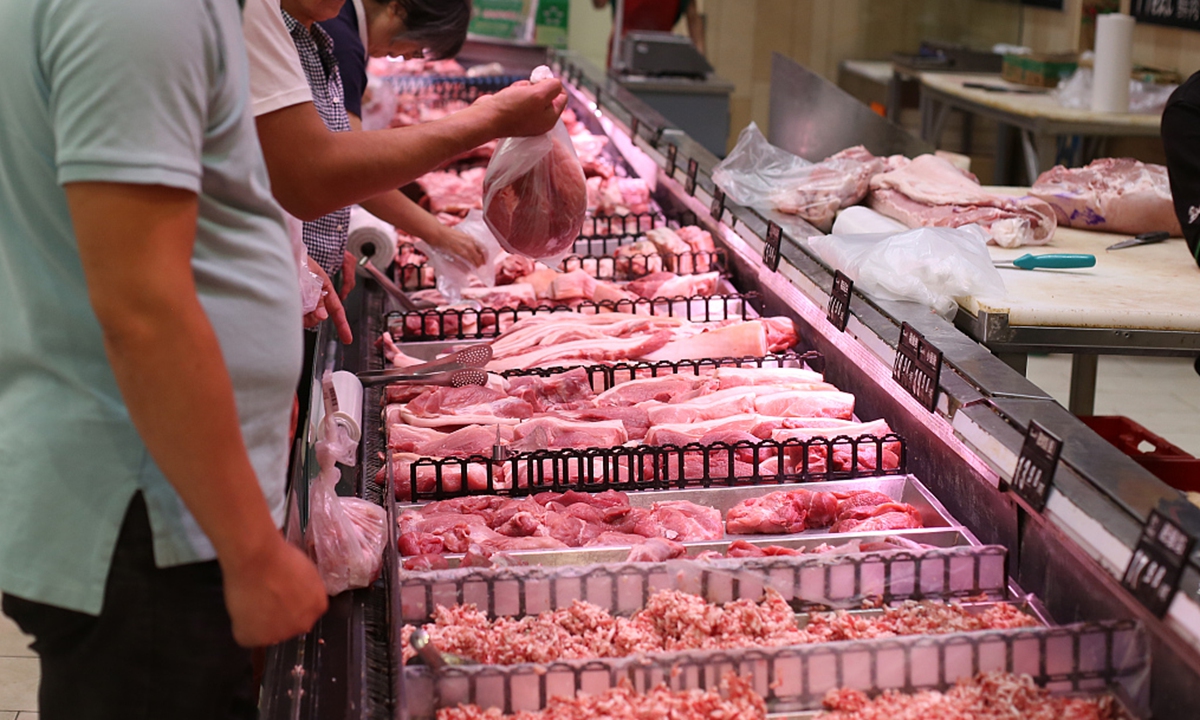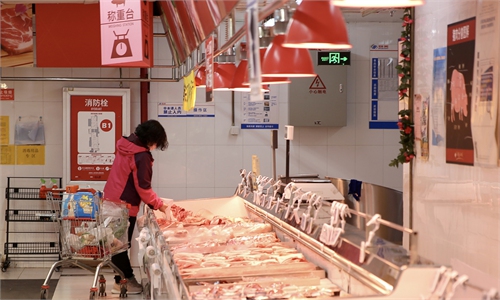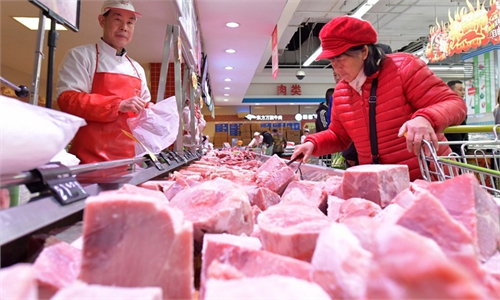
pork Photo:VCG
Many provinces in China have started to buy pork to ramp up their stock to support prices that have plunged in recent months, as the government worked to stabilize supplies and prices of meat, eggs and vegetables after the Spring Festival.
Over the past week, the wholesale price of pork saw a further decline. According to data released by the Ministry of Agriculture and Rural Affairs, the average price of pork in the national agricultural wholesale market was 19.76 yuan ($2.53) per kilogram, a decline of 5.68 percent compared with the previous Friday.
"After the Spring Festival, consumers' demand for pork decreased sharply, but with the continuous recovery of China's pig production, the market supply is still growing, which may lead to the further decline of pork prices," Wang Zuli, deputy researcher at the Institute of Agricultural Economics and Development of the Chinese Academy of Agricultural Sciences, told the Global Times on Sunday.
On February 8, China's top economic planner, the National Development and Reform Commission (NDRC), said on its WeChat account that pork prices had shown an "excess decline", and the hog-to-grain ratio reached 5.57:1 from January 24-28, approaching an alarming level, which reflected higher production costs for the hog slaughtering enterprises.
Given this, the NDRC urged local governments to start buying more pork for reserves, in a bid to stabilize prices and hog production.
Many provinces including Southwest China's Sichuan Province and Central China's Hubei Province have started pork purchases and storage. On February 11, Northwest China's Ningxia Hui Autonomous Region announced it was buying pork, urging slaughtering enterprises to make better decisions on supply to maintain pig production at a reasonable level.
Wang predicted that pork prices will remain depressed in February and could rebound in the second half of the year, when the overall hog supply is expected to fall in the domestic market.
Analysts said that price of pork, a staple meat in the country, is essential to the consumer price index (CPI) as well as Chinese people' livelihood. In January, China's CPI rose 0.9 percent year-on-year, a slowdown from 1.5 percent in December last year, data from the National Bureau of Statistics showed.
Pork prices fell by 41.6 percent year-on-year, dragging down the CPI by 0.96 percentage points.
Wang said that the decline of pork prices in February will lead to the further slowdown of this month's CPI.
Global Times



